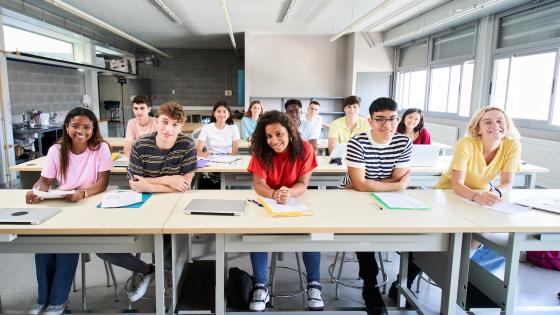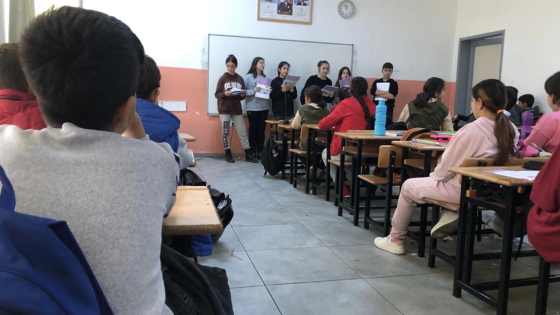European countries are increasingly concerned with the efficiency of their universities. An issue that has been discussed repeatedly is the lack of meritocracy in recruiting and hiring processes (Perotti 2002, Combes et al. 2008, Durante et al. 2011). In an attempt to improve the system, several European countries have reformed the organisation of universities during the last decade (Aghion et al. 2010). In this respect, Spain offers an insightful case.
Before 2002, Spanish public universities had a large degree of autonomy regarding hiring and promotion decisions. This system was associated with extensive inbreeding, generating public concerns about the potential existence of favouritism. In 2002, the government limited the autonomy of universities and introduced a system of centralised competitions known as habilitación. The new system required candidates to full and associate professor positions to qualify in a national competition held at the discipline level. To guarantee transparency, evaluators were selected out of the pool of eligible professors in the discipline using a random lottery.
In a recent paper, we analyse the extent of favouritism within this system of centralised competitions (Zinovyeva and Bagues 2012). We find that prior connections between candidates and evaluators have a dramatic impact on candidates' chances of being promoted. The magnitude of this effect is increasing with the strength of the connection. Candidates' chance of being promoted is 78% greater if the seven-member committee includes, by luck of the draw, their adviser or a co-author. The presence in the committee of a colleague from the same university increases candidates' chance of success by 35% and the presence of a weaker connection, such as a member of their thesis committee, by 19%. The impact of connections is (statistically) similar in natural sciences, social sciences, and humanities and it is particularly large in small disciplines. The importance of connections is commensurate with the relevance of observable research quality, as measured by the number of publications, received citations, and participation in thesis committees. For instance, the presence of a co-author or an adviser in the promotion committee is equivalent to a one standard deviation increase in candidates' observable quality.
Why are candidates more likely to be promoted when they are (randomly) assigned to an acquainted committee? In principle, there are two sets of competing explanations. Evaluators may have heterogeneous preferences that lead to evaluation biases. They may favour connected candidates because they share a common view on which academic areas are more valuable, or perhaps simply out of cronyism1. However, information asymmetries might also mediate the effect of connections. In a tournament where only a few candidates can be promoted, evaluators will optimally tend to select candidates whose quality they can observe more accurately (Cornell and Welch 1996). Evaluators may have better information about the true quality of acquainted candidates, including their research pipeline or their contribution to co-authored papers.
To disentangle between these two hypotheses, we use information on candidates' research production during the five-year period following the promotion. The evidence suggests that the source of the premium enjoyed by connected candidates depends on the nature of their relationship with committee members. In the case of strong connections, the data are not consistent with the information asymmetry explanation, at least in the research dimension. Candidates who were promoted by a committee including their thesis advisor, a co-author, or a colleague exhibit a worse research record, both before and after the evaluation, relative to other promoted candidates. However, in the case of weak links, informational gains tend to dominate potential evaluation biases. Candidates who were promoted by a weak link turn out to be significantly more productive in the future. In sum, according to our findings, conflicts of interest should be prevented, but weak connections should be allowed or even promoted.
The introduction of centralised competitions with random assignment of evaluators to committees per se does not seem to eliminate the problem of favouritism. If anything, it introduces an element of randomness relative to who benefits from connections and who gets ultimately promoted. It also favours candidates with many strong connections, such as candidates from large universities. Our work might be also interpreted as additional evidence in favour of a radical change in the way higher education is organised in continental Europe. The analysis of Aghion et al. (2010) suggests that a combination of competition and autonomy would make European universities more productive. According to this view, Europe needs to move from a system of rules to one of incentives, whereby it is in the interest of universities to appoint and promote the most productive individuals (Perotti 2002).
Our analysis does not provide an answer about which of these alternatives, more rules or incentives, would yield better outcomes. Nevertheless, it illustrates the limitations of a system of centralised competitions where evaluators (and universities) do not internalise the consequences of their decisions.
References
Aghion, Philippe, Mathias Dewatripont, Caroline Hoxby, Andreu Mas-Colell and André Sapir (2010), “The governance and performance of universities: evidence from Europe and the US”, Economic Policy, 25(61):7-59.
Combes, Pierre-Philippe, Laurent Linnemer and Michael Visser (2008), “Publish or peer-rich? The role of skills and networks in hiring economics professors”, Labour Economics, 15:423-441.
Cornell, Bradford and Ivo Welch (1996), “Culture, Information, and Screening Discrimination”, Journal of Political Economy, 104(3):542-571.
Durante, Ruben, Giovanna Labartino, and Roberto Perotti (2011), “Academic Dynasties: Decentralization and Familism in the Italian Academia”, NBER Working Paper #17572.
Perotti, Roberto (2002), “The Italian University System: Rules vs. Incentives”, paper presented at the first conference on Monitoring Italy, ISAE, Rome.
Schumpeter, Joseph A (1954), History of Economic Analysis, George Allen and Unwin.
Zinovyeva, Natalia and Manuel Bagues (2012), “The Role of Connections in Academic Promotions”, IZA Discussion Paper #6821.
1 As Joseph A Schumpeter (1954) pointed out, “it is merely human nature that we overrate the importance of our own types of research and underrate the importance of the types that appeal to others.” (History of Economic Analysis, London: George Allen and Unwin, 1954, page 20.)


